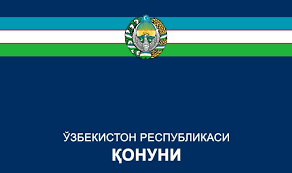The Law "On Conflict of Interests" has been adopted
Serving the interests of society is the fundamental task of public service.
Citizens expect government officials to perform their official duties honestly, fairly and impartially.
The public expects that the government will ensure conditions under which personal interests, private interests, and other connections of employees of government agencies and other organizations will not be able to influence the mechanism of government decision-making, allow improper performance of official duties or undermine the credibility of public authorities.
In fact, the Conflict of Interest Law is the basis of anti-corruption policy, one of the main tools for ensuring integrity, transparency, accountability and efficiency of public service.
The normative act establishes 5 basic principles that constitute the fundamental principles of ethical behavior.
The key principles regarding conflicts of interest are that civil servants should act in such a way
as to support the constitutional principle of legality and priority of the legitimate interests of citizens, organizations, society and the state;
In order to maintain public confidence in the public service, it is open, transparent, objective, and intolerant of any manifestations of corruption.
The legislative act is aimed at regulating relations related to conflicts of interest, which creates risks of abuse, opaque decisions and other corrupt practices.
The purpose of the Law is to establish clear rules and mechanisms for managing such risks, and to improve the quality of public administration.
Thus, the Law is based on a modern legal policy and the concept of conflict of interest management aimed at finding a balance by identifying corruption risks, prohibiting abuse, adequately managing conflict situations, raising awareness of civil servants, ensuring effective procedures for their identification, disclosure, resolution, as well as dissemination of information on effective conflict management methods.
To accomplish this task, the Law provides for the following provisions:
on the need to introduce and comply with the norms of internal order in state bodies aimed at ensuring honesty and integrity;
ensuring effective identification of the risk of conflicts of interest and resolution of conflicts that have arisen;
Introduction of appropriate external and internal accountability mechanisms;
the introduction of appropriate management methods, including responsibility aimed at ensuring the personal responsibility of civil servants for compliance with legislation on conflict of interest.
The key provisions of the Law are related to the definition of concepts: "conflict of interest", "personal interest", "close relatives", as well as with mechanisms, procedures for identifying and regulating relations related to a conflict of interest.
The law clearly defines what constitutes a conflict of interest and assigns an employee of a public authority to faithfully perform his official duties, avoiding personal interest that leads or may lead to a conflict of interest, to promptly identify and report cases of conflict of interest in relation to himself and other employees.
This Law has been developed taking into account the provisions of the UN Convention against Corruption, the recommendations of the OECD and the Group of States on Combating Corruption (GRECO) Council of Europe, World Bank on Conflict of Interest Resolution in public service.
In accordance with the methodological recommendations of the 5th round of monitoring within the framework of the OECD Istanbul Anti-Corruption Action Plan, the definition of "conflict of interest" in the Law is applicable to public officials, concepts of actual (real) conflict of interest, potential conflict of interest.
The concepts of "personal interest", "close relatives", and a list of methods for resolving conflicts of interest have been developed taking into account the Recommendations of the OECD Council on the Guidelines for Resolving Conflicts of Interest in Public Service (2003), the Model Code of Conduct for Public Servants of the Council of Europe.
This approach, based on the harmonization of national legislation with international standards and best practices, improves the quality of legal instruments, effectiveness and effectiveness of measures, which is extremely important for effective anti-corruption and confidence-building in public institutions.

